Strengthening Urban Rail Transport in Turkey:
Inside GSLʼs Robustel R3000 Rollout – Safer Journeys, Better Efficiency and Real-Time Control.
Case Study – Fast Facts
Location
Turkey
Industry
Smart City, Transportation
Product(s)
- R3000
- RCMS
End Customer
Bozankaya A.Ş – https://www.bozankaya.com.tr/
Bozankaya A.Ş. is a prominent Turkish manufacturer of electric buses and rail systems, known for delivering next-generation urban transport solutions across Europe and the Middle East.
Deployment Partner
GSL Mühendislik – https://gsl.com.tr/
GSL is a leading Turkish provider of industrial networking and communication solutions, specializing in complex deployments across transportation, energy, and public infrastructure sectors.
Challenges
Bozankaya’s new tram fleet in Kocaeli struggled with unreliable wireless connectivity as trams moved through urban zones, tunnels, and dead spots; disrupting live CCTV, diagnostics, and passenger information systems. Their on-board systems were also subject to harsh environmental stress: vibration, electromagnetic interference, and temperature extremes. Without remote access, every system fault required an engineer’s physical visit, causing delays, rising costs, and interrupted service.
Results
By deploying Robustel’s R3000 routers with dual-SIM failover and integrating with the RCMS cloud platform, GSL and Bozankaya gained full remote oversight. Technicians now diagnose, update, and resolve issues centrally, slashing response times from hours to minutes. Onboard systems such as CCTV, PIS, and diagnostics operate continuously even in extreme conditions. The move dramatically reduces costly site visits, improves system uptime, and lays a resilient foundation for scalable future enhancements (e.g. predictive maintenance, 5G readiness).
Remote Monitoring for Light Rail Systems: Discover how Robustel & GSL enable real-time remote access for CCTV and diagnostics in Bozankaya’s tram fleet using R3000 routers and RCMS.
As cities expand and transit networks modernize, the demand for secure, real-time connectivity in light rail systems is rapidly increasing. In Turkey’s Kocaeli province, the Metropolitan Municipality partnered with Bozankaya to deploy a fleet of modern trams aimed at enhancing public mobility. A core requirement was the ability to remotely access onboard systems such as Passenger Information Systems (PIS), CCTV, and vehicle diagnostics in real time. Without reliable wireless communication, operators risk delayed incident response, limited situational awareness, and costly maintenance inefficiencies. This project aimed to overcome those challenges with a future-ready remote connectivity solution tailored for urban light rail.
Business Challenges
Business Challenge 1: Unstable Connectivity in Motion
Urban environments present a notoriously difficult landscape for maintaining stable wireless communication—particularly for moving vehicles like trams. Signal interference from buildings, fluctuating tower coverage, and the dynamic nature of mobile handovers all contribute to frequent connection drops and inconsistent data throughput. For a modern light rail system such as Kocaeli’s, this creates critical vulnerabilities. Essential onboard systems—including CCTV cameras, Passenger Information Systems (PIS), and diagnostics interfaces—depend on uninterrupted, high-bandwidth communication to function as intended.
Without stable connectivity, live video streams may lag or disconnect, system alerts may not reach control centers in real time, and remote troubleshooting becomes impossible. Operators are left without the situational awareness needed to ensure safety and efficiency. These lapses can delay response to incidents, disrupt passenger services, and drive up maintenance costs.
The solution demanded a wireless infrastructure capable of providing resilient, high-speed backhaul across varied urban conditions. That meant supporting seamless network transitions, low-latency data transfer, and continuous performance—whether the tram was in motion, at a terminal, or passing through low-signal zones. Robustel’s cellular technology met this challenge head-on.
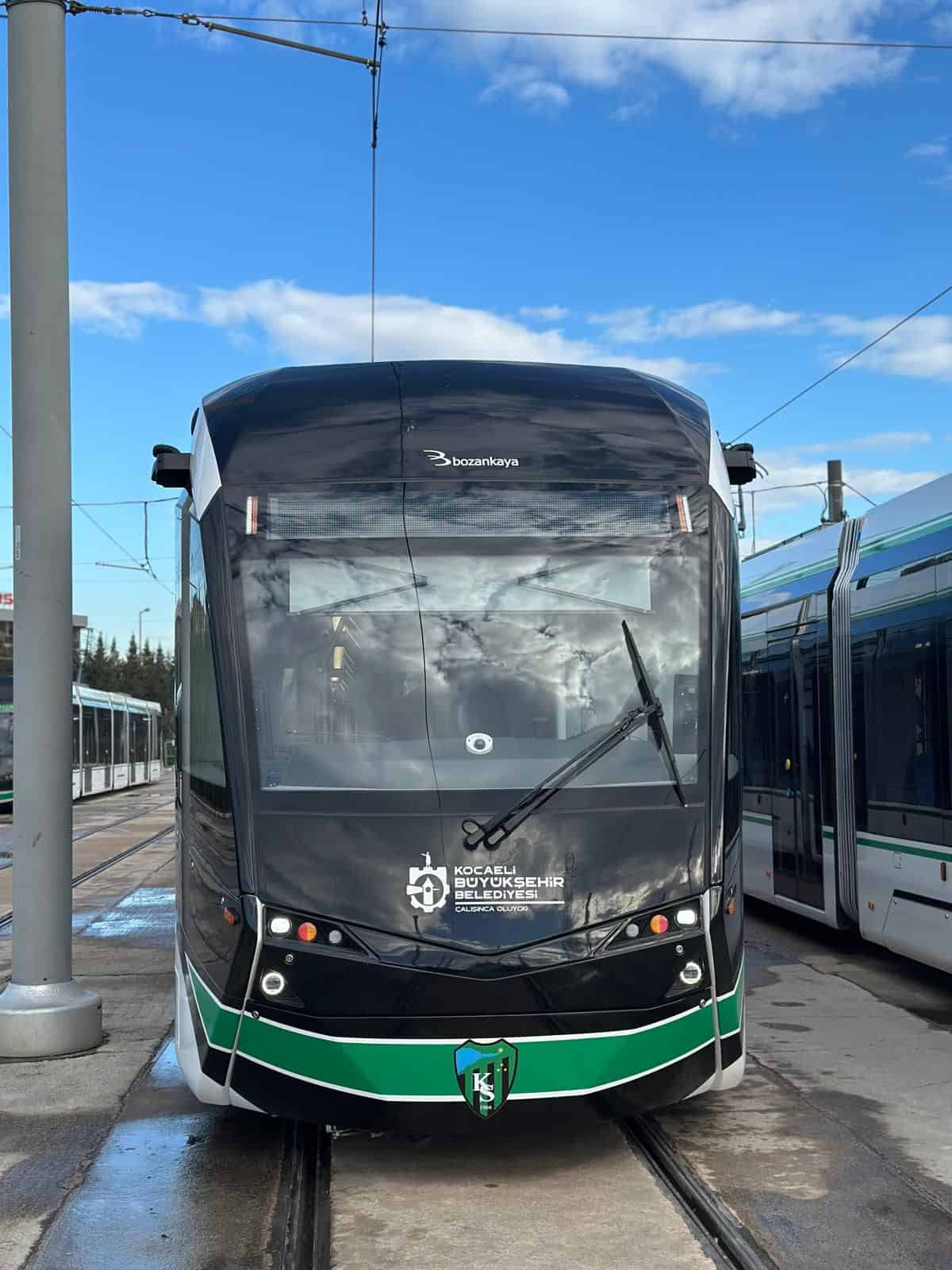
Business Challenge 2: Environmental Stress in Rail Applications
Rail transport environments are among the most demanding for industrial electronics. Trams operate year-round in conditions that range from sweltering summer heat to freezing winter temperatures, with frequent exposure to moisture, dust, and vibration. For cities like Kocaeli, where climatic variability is pronounced, onboard communication systems must perform flawlessly regardless of the external environment. A failed router during a summer heatwave or a winter storm can disrupt surveillance, halt diagnostics, and compromise passenger services.
The communication infrastructure also needs to operate alongside other sensitive railway systems. In this project, data from onboard systems was routed through an EN50155-compliant Ethernet switch, ensuring safe operation in a railway-specific electromagnetic environment. While the router itself does not require EN50155 certification, it must integrate reliably within that ecosystem and tolerate similar stresses.
GSL’s challenge was to source a communications solution that maintained reliable performance in the face of constant vibration, electrical noise, and a wide operating temperature range. Robustel’s R3000-4L router delivered industrial-grade resilience—capable of operating from -40 to +75°C with a rugged IP30-rated metal enclosure and proven durability across harsh conditions.
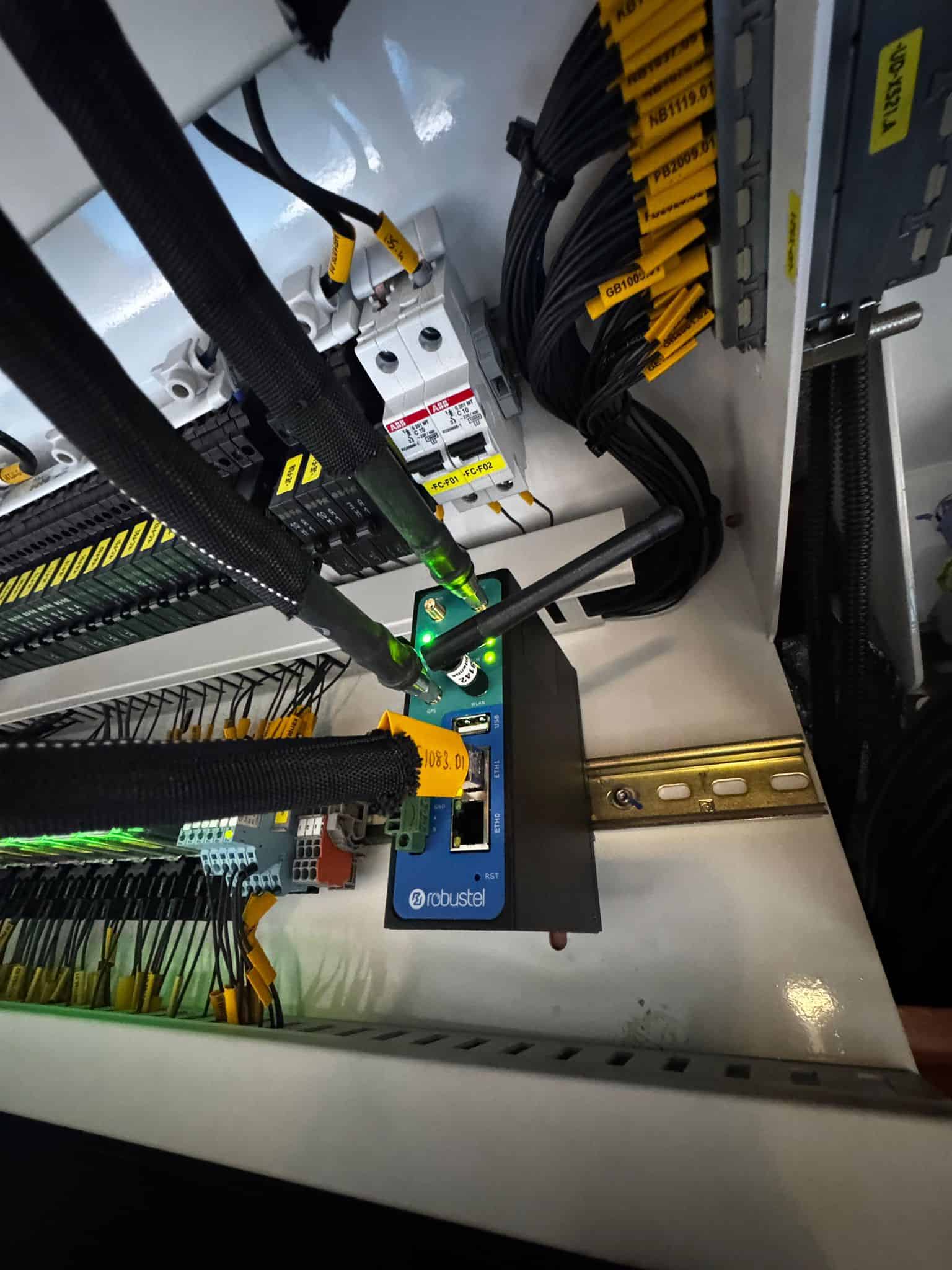
Business Challenge 3: Lack of Real-time Oversight and Diagnostics
Modern light rail systems depend on seamless integration between onboard equipment and centralized operations. Real-time visibility into tram subsystems—such as Passenger Information Systems (PIS), CCTV, and vehicle diagnostics—is essential not only for passenger safety but also for minimizing service disruptions and maintenance overhead. Without a reliable remote access framework, any issue—be it a camera outage, a malfunctioning display, or a diagnostic alert—must be identified and resolved manually, often requiring physical inspections or on-site technician visits.
For Kocaeli Metropolitan Municipality, these inefficiencies posed operational and financial risks. In a high-frequency transit environment, delays in detecting faults can cascade into extended downtime, eroded public trust, and unnecessary labor costs. What was needed was a communications backbone capable of streaming real-time data from the tram to the control center securely and consistently.
With support from GSL, the deployed Robustel solution provided the essential infrastructure for live data transmission, remote diagnostics, and centralized monitoring. Using VPN-secured 4G connectivity and RCMS cloud integration, operators could monitor system health, respond to anomalies, and access onboard equipment without delay—ultimately reducing response times, lowering operational costs, and improving service continuity.
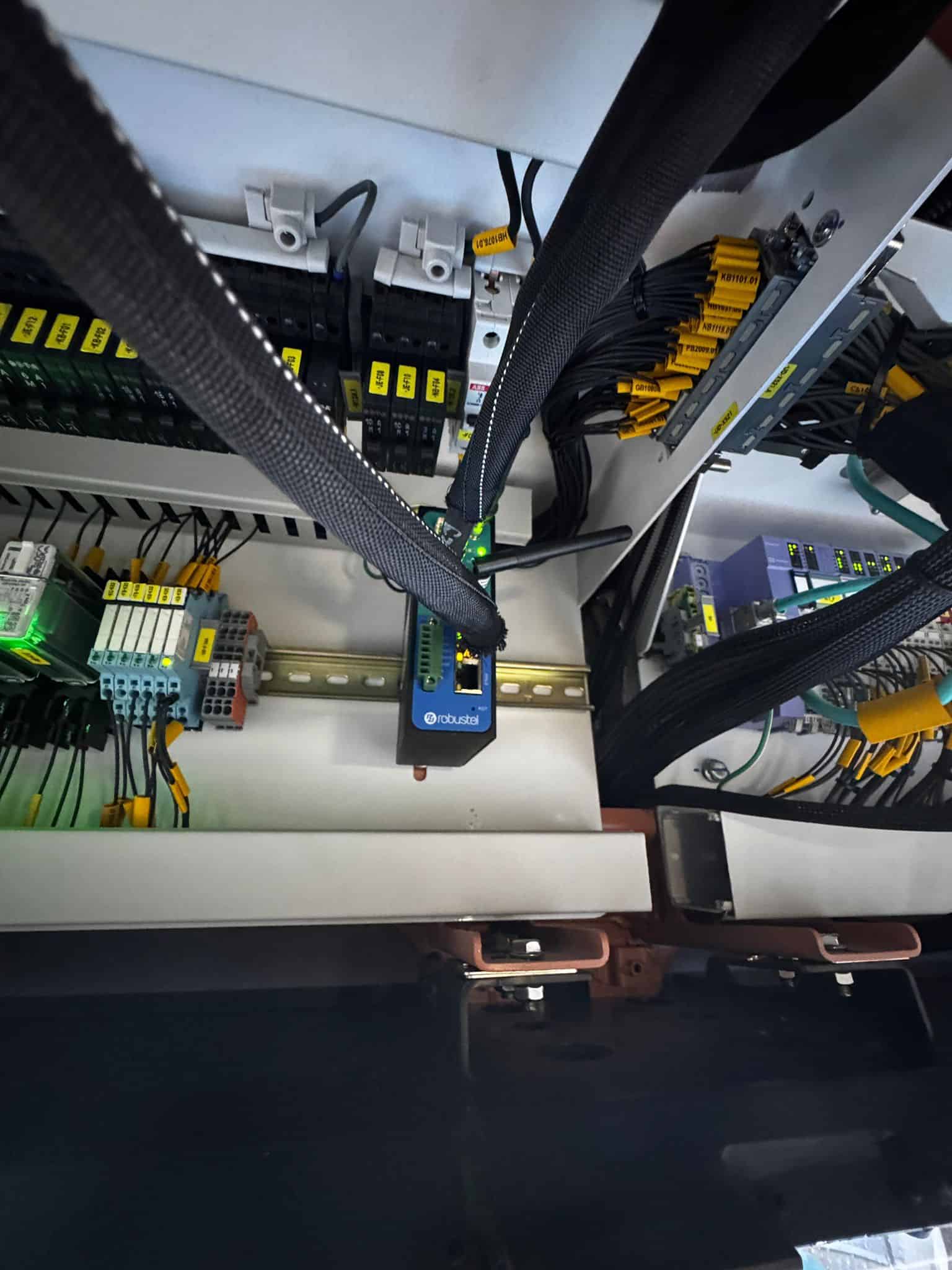
Solution Overview
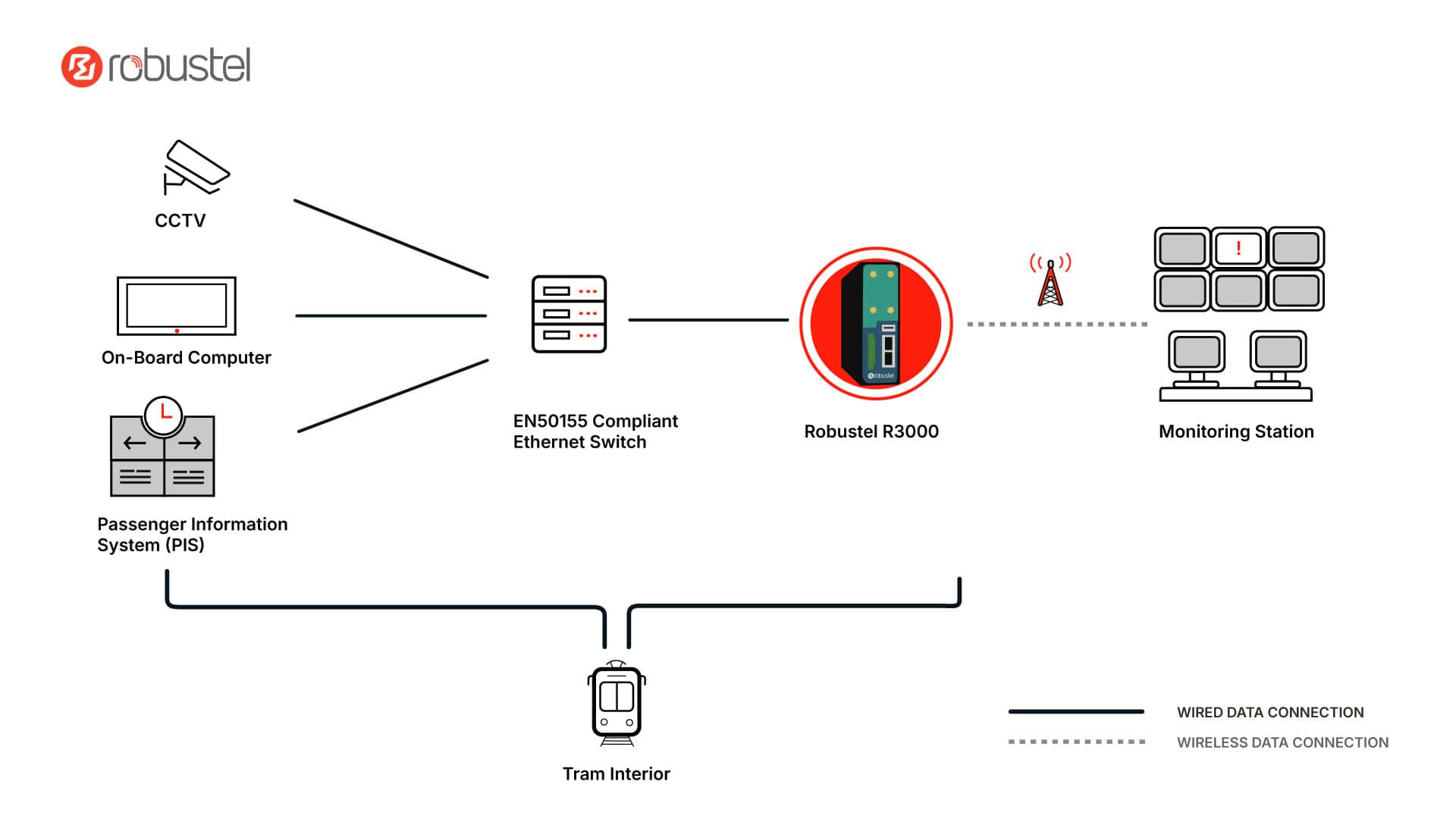
To enable secure, real-time access to critical onboard systems, Robustel R3000-4L industrial cellular routers were deployed across Bozankaya’s fleet of trams. These devices served as the communications backbone, linking onboard systems—including CCTV, Passenger Information Systems (PIS), and vehicle diagnostics to the central control center via 4G LTE. The routers acted as wireless gateways, managing all data traffic between the vehicle and operations team through secure VPN tunnels, while simultaneously offering local access capabilities via Wi-Fi and real-time fleet visibility using built-in GPS.
Crucially, each tram’s onboard architecture featured an EN50155-compliant Ethernet switch, which aggregated data from multiple subsystems before passing it to the Robustel router for uplink. This allowed for a clean, modular setup that ensured compliance with rail-specific EMC standards while leveraging the R3000’s industrial-grade resilience. From temperature extremes to mechanical vibration, the R3000 performed reliably in the demanding physical and electromagnetic environment typical of rail infrastructure.
Why GSL Chose the Robustel R3000-4L
- Reliable 4G Connectivity with VPN Security: The R3000 provided consistently stable 4G LTE communication, critical for transmitting sensitive data like CCTV feeds and diagnostics. Its support for encrypted VPN tunnels ensured end-to-end data protection.
- Dual SIM Failover for Redundancy: Built-in dual SIM functionality enabled automatic network failover, maintaining uninterrupted connectivity in areas with weak or inconsistent cellular coverage.
- Integrated GPS for Fleet Tracking: The onboard GPS module delivered accurate real-time location data, essential for centralized monitoring and route optimization.
- Wi-Fi Support for Local Access: Wi-Fi capability allowed technicians to access system interfaces directly from within or near the tram, simplifying maintenance and updates without physical disassembly.
- RCMS Cloud Integration for Scalable Management: Robustel’s Remote Cloud Management System (RCMS) allowed GSL and Kocaeli operators to monitor, configure, and update routers remotely—reducing the need for on-site interventions.
- Industrial Design for Harsh Environments: Operating within a temperature range of -40°C to +75°C, the IP30-rated metal enclosure and robust EMC protection made the R3000 ideal for rugged transit conditions.
Key Outcomes
Partner-Led Deployment Success
As the technical consultant and local solution provider, GSL was instrumental in designing and executing the architecture of the remote access system. They evaluated hardware options based on environmental and operational requirements, coordinated procurement and integration timelines, and ensured the R3000-4L-W-GPS was configured to meet the specific needs of Bozankaya’s rail application. GSL’s deep domain expertise in industrial connectivity and strong partnership with Robustel ensured a smooth deployment and a scalable foundation for future system expansions.
Key Outcomes for Kocaeli Municipality
The success of the Bozankaya tramway connectivity project hinged not only on the strength of the hardware but also on the precision of its deployment. Robustel’s industrial-grade cellular routers, combined with GSL’s deep technical knowledge and integration capabilities, delivered a solution that performed reliably in the demanding conditions of light rail transport. From configuration to real-time operation, the system demonstrated how carefully aligned technology and local expertise can significantly enhance the safety, efficiency, and scalability of public transportation networks.
- Improved Operational Visibility: By enabling remote access to onboard systems, including diagnostics and live video feeds, the system gave operators full situational awareness at all times. This visibility allowed for faster fault identification and proactive response, significantly reducing system downtime and improving service continuity.
- Enhanced Passenger Safety: Continuous uplink of CCTV streams and system status alerts allowed central teams to react immediately to safety concerns. The ability to monitor tram interiors in real time improved oversight, helping ensure rapid response in the event of incidents or emergencies.
- Reduced Maintenance Costs: The remote access architecture eliminated the need for frequent site visits or manual inspections. Technicians could assess and troubleshoot issues directly from the control center, saving labor hours and reducing the operational costs associated with field diagnostics.
- High Reliability in Harsh Conditions: With ruggedized hardware designed for extreme temperatures and network redundancy through dual SIMs, the Robustel solution maintained consistent uptime even in challenging operating environments. This reliability ensured uninterrupted service delivery and passenger trust.
Featured Products
Robustel R3000 Router
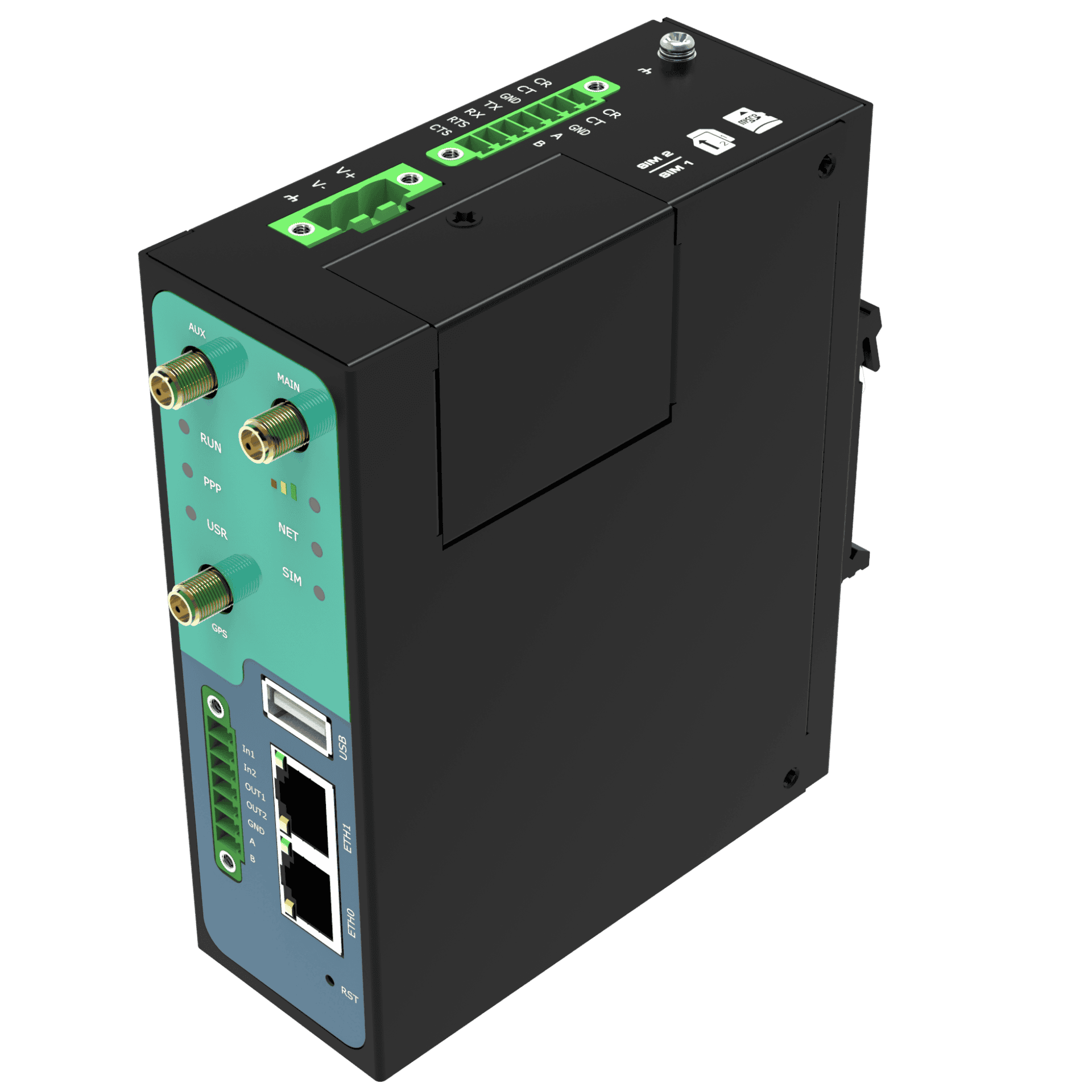
RCMS – Cloud Device Management

